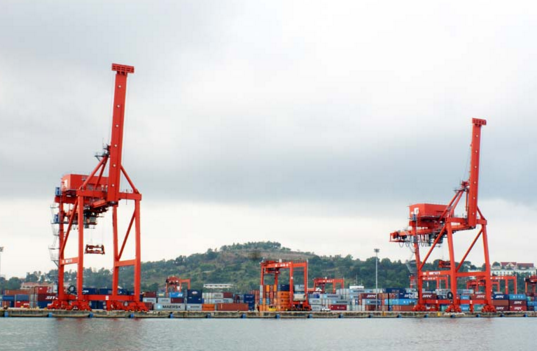
BEIJING, Jan. 9 (Xinhua) -- China and Cambodia have expanded their cooperation in multiple fields including agriculture, energy, transport, with the alignment between China-proposed Belt and Road Initiative and Cambodia's Rectangular Strategy.
Cambodian Prime Minister Hun Sen spoke highly of the great significance of the Belt and Road to common development of the two countries.
In his opinion, it is one of the characteristics of the Belt and Road construction to coordinate development policies of the partners, on the basis of mutual respects. For Cambodia, the Belt and Road Initiative has better conformed to Cambodia's development planning, especially Cambodia's ongoing "Rectangular Strategy"-Phase III.
In 2004, the Cambodian government launched the Rectangular Strategy focusing on agricultural development, infrastructure rehabilitation and development, private sector development and employment creation, and capacity building and human resource development.
The Rectangular Strategy is highly consistent with the Belt and Road Initiative in many fields. Connection of the two development ideas has put many important projects in place, such as Siem Reap International Airport, Phnom Pehn-Sihanoukville highway, Se San II hydrowpower plant, and the first intercontinental cable project in Cambodia.
Observers say that China and Cambodia have taken the alignment between the Belt and Road Initiative and the Rectangular Strategy as a chance to expand their cooperation and accelerate development. On the one hand, the two sides have firmly focused on implementation of the projects and made them the standard and demonstration projects for Cambodia's relevant industries. On the other hand, under the circumstances of Cambodia's industry development, the Chinese technologies and Chinese experience are introduced to Cambodia, laying a solid foundation for their long-term cooperation and development.
According to statistics, in the first ten months of 2017, China's agreed investments in Cambodia amounted to 12.57 billion U.S. dollars, accounting for 36.4% of Cambodia's foreign direct investment (FDI).
In the first 11 months of 2017, bilateral trade between China and Cambodia reached 5.27 billion U.S. dollars, up 23.3% year on year, ahead of the 5 billion U.S. dollar objective set by leaders of the two countries, said Li An, commercial counselor of the Chinese embassy in Cambodia. (Edited by Hu Pingchao, hupingchao@xinhua.org)




 A single purchase
A single purchase







